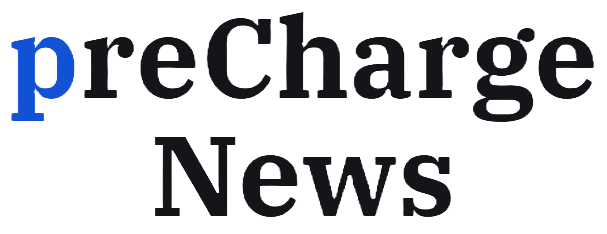

preCharge News BUSINESS — Tesla CEO Elon Musk confirmed Tuesday that the electric vehicle giant will launch its first robotaxi fleet in Austin, Texas by the end of June, marking a pivotal moment in the company’s long-promised self-driving ambitions.
In an exclusive CNBC interview at Tesla’s Austin headquarters, Musk detailed plans to deploy an initial fleet of 10 robotaxis, with plans to rapidly scale if the pilot proceeds without incidents. The rollout will begin with Tesla’s Model Y vehicles, retrofitted with a new version of its Full Self-Driving (FSD) software, dubbed FSD Unsupervised.
From Promise to Street Test: The Long Road to Autonomy
Tesla’s push into driverless transportation has been years in the making. Since 2016, Musk has told investors and fans that true autonomy was just a year away. Yet despite regular software updates, Tesla vehicles still require human supervision behind the wheel.
Now, Musk says the technology is ready — at least for limited deployment.
“It’s prudent for us to start with a small number, confirm that things are going well and then scale it up,” Musk said.
Unlike its competitors, Tesla’s approach is distinct: rather than relying on lidar, radar, and high-definition maps like Alphabet’s Waymo, Tesla’s robotaxis operate primarily on AI, cameras, and neural networks. Musk has long argued that a camera-based vision system is cheaper to scale and better suited for real-world driving conditions.
Austin Launch to Be Geofenced, Fully Driverless
Tesla will geofence the robotaxis in Austin at launch — limiting them to specific areas where conditions are deemed safe. Still, the cars will operate without a human safety driver, Musk confirmed. Instead, Tesla employees will monitor the fleet remotely, intervening only when necessary.
“We’ll be watching what the cars are doing very carefully,” Musk said. “As confidence grows, less of that will be needed.”
Following Austin, Tesla plans to expand the robotaxi service to Los Angeles and San Francisco, two of the most challenging and competitive markets for autonomous mobility in the U.S.
Meanwhile, Waymo is already running 250,000 paid, driverless rides per week across several U.S. cities, giving it a major head start in the autonomous ride-hailing race.
Musk Defends Tesla Amid Sales Dip and Political Tensions
Tesla’s robotaxi announcement arrives at a complex time for the company. The automaker reported a 20% drop in automotive revenue in Q1 2025, as global demand for electric vehicles cooled and production lines paused to accommodate a retooled Model Y.
Musk dismissed concerns, attributing the decline to factory retooling rather than waning demand.
“We can’t make cars if the factories are retooling. But we’ve seen a major rebound in demand at this point,” he said, offering no specific figures.
Pressed on Tesla’s recent political controversies, Musk challenged critics who claim his views influence consumer sentiment.
“When you buy a product, how much do you care about the political views of the CEO?” he asked. “Or even care what they are?”
Musk’s Growing Political Clout and Multi-Billion Fortune
While running Tesla, SpaceX, and his AI venture xAI, Musk has taken on another role: key advisor to former President Donald Trump, having poured nearly $300 million into his 2024 election effort.
His influence in Washington has grown through the creation of the Department of Government Efficiency (DOGE) — an entity Musk founded to dismantle federal agencies and streamline bureaucracy, a move backed by Trump.
Despite the controversies, Musk’s empire remains robust. With large holdings in Tesla and SpaceX, he is now the world’s richest person, boasting a net worth of $376 billion, according to the Bloomberg Billionaires Index.
During the Qatar Economic Forum earlier this week, Musk reaffirmed his commitment to Tesla.
“Yes, no doubt about that at all,” he said when asked whether he would remain CEO for the next five years.
Tesla’s Robotaxis Enter a Critical Test Phase
Tesla’s June launch in Austin will serve as both a technological and regulatory litmus test for the future of autonomous vehicles. If successful, it could catapult Tesla ahead in the robotaxi race and offer a powerful counterpoint to Waymo’s early dominance.
With political headwinds, EV sales pressure, and fierce competition mounting, Musk is betting big — not just on AI and autonomy, but on Tesla’s ability to outmaneuver its critics and competitors alike.
Want to earn some extra money on the side? Buy PCPi Coin or Subscribe to VIP and get dividens monthly.
____
Associated Press, CNBC News, Fox News, and preCharge News contributed to this report.

























